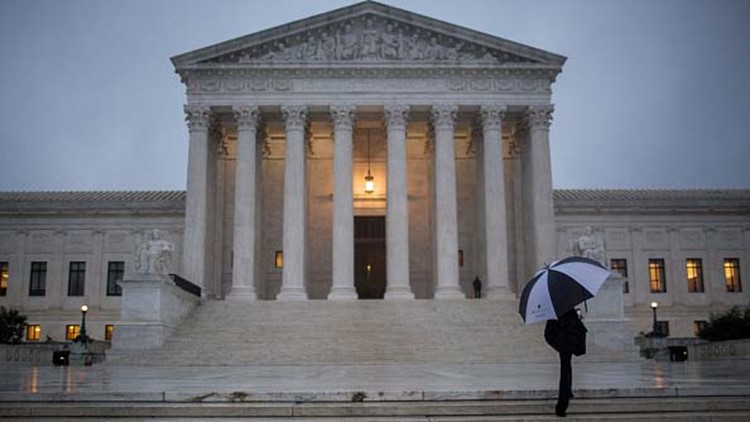Brett Kavanaugh was passed through the Senate Judiciary Committee, which means he's one step closer to becoming the next Supreme Court Justice.
But what can be done about the sexual assault claims made by Dr. Christine Blasey Ford and the other women who have come out with allegations against Kavanaugh?
THE QUESTION
Can a Supreme Court Justice still face criminal or civil charges in their role? And what would be the outcome?
THE ANSWER
While justices and all judges for that matter are granted "judicial immunity" for lawsuits related to cases or trials they oversee, for crimes or actions committed outside their role, they face the same punishments and judicial actions as any other US citizen.
The only difference is that a justice on the Supreme Court won't lose their seat if they're found guilty. The only way a justice can be removed from their position is by an act of Congress.
WHAT WE FOUND
A detailed explanation of impeachment procedures and qualifications can be found in a 35-page research document by the Congressional Research Service.
To save readers a wall of text, we're breaking it down into some main points:
- While justices can be accused, tried and even found guilty of any crime, they won't lost their Supreme Court seat because of any sentence.
- The only way a justice on the Supreme Court can be removed is by impeachment and subsequent conviction.
- Like in cases involving the president and vice president, impeachment of a justice requires a majority of the US House of Representatives to approve the "impeachment" and then a 2/3 "supermajority" of the US Senate would have to convict the justice.
- While there is one historical case of a justice being impeached, he was cleared of wrongdoing by the Senate. This means that no justice on the Supreme Court has ever been removed from their seat.



